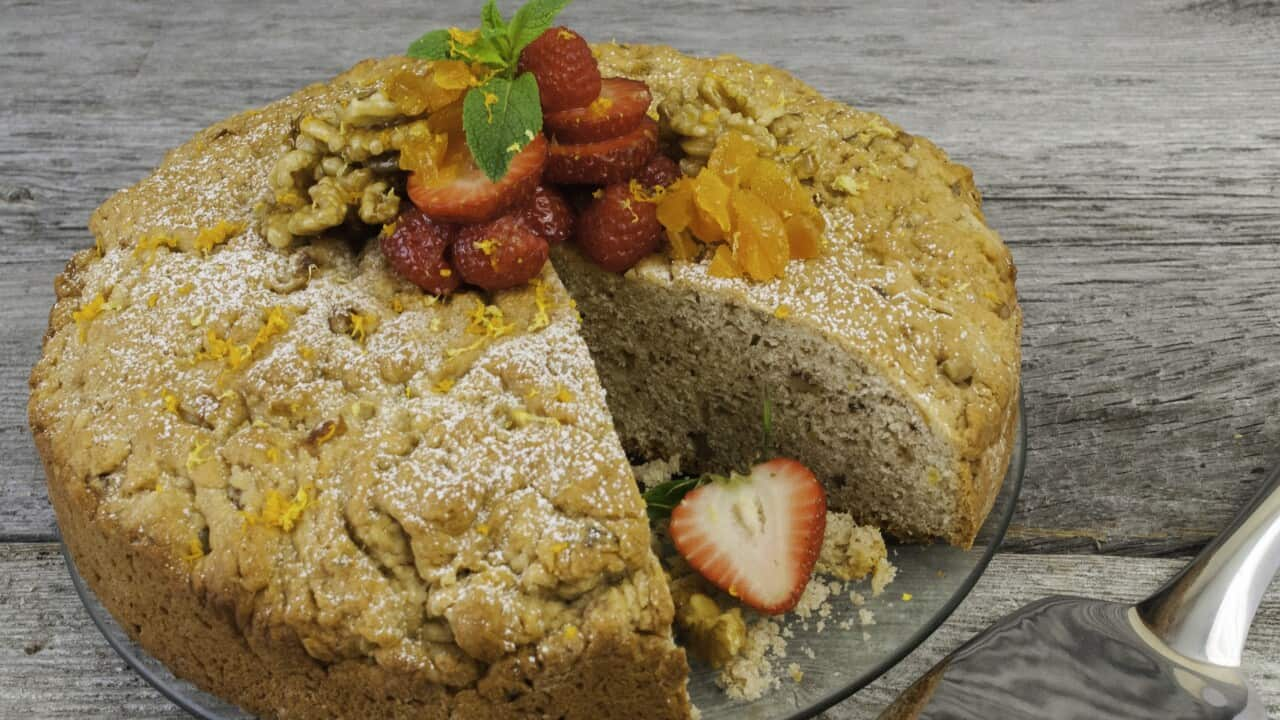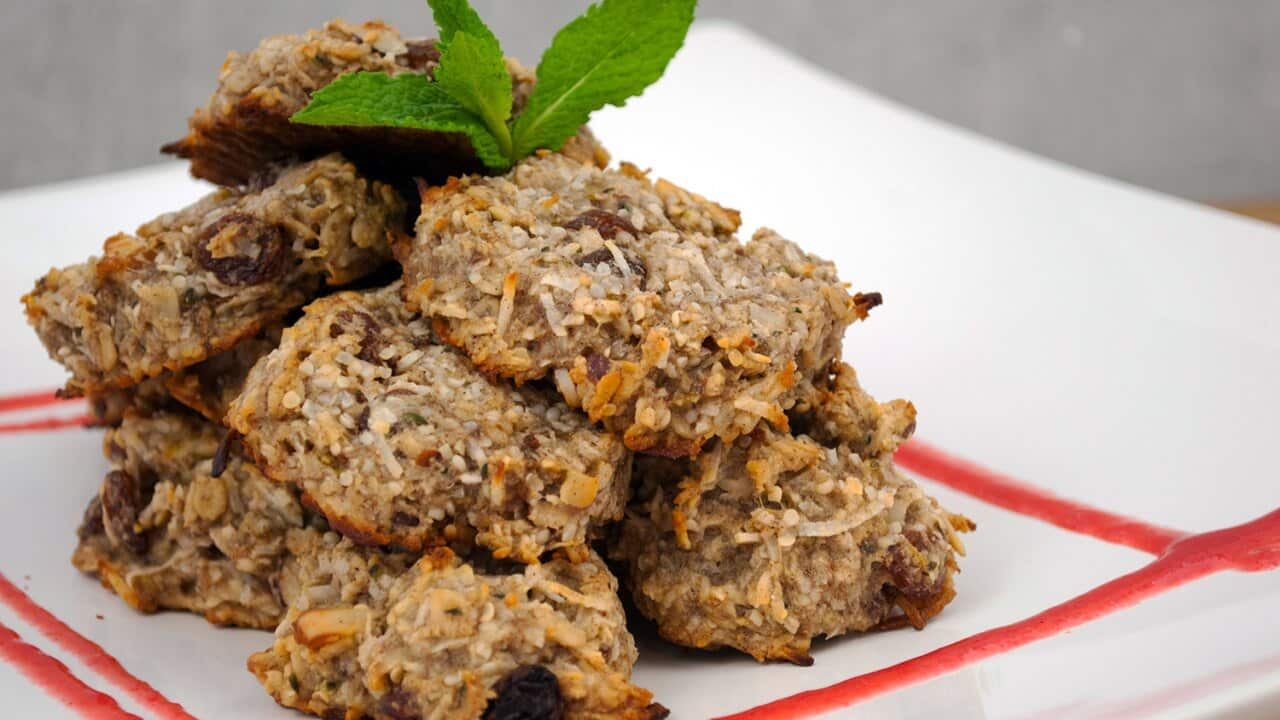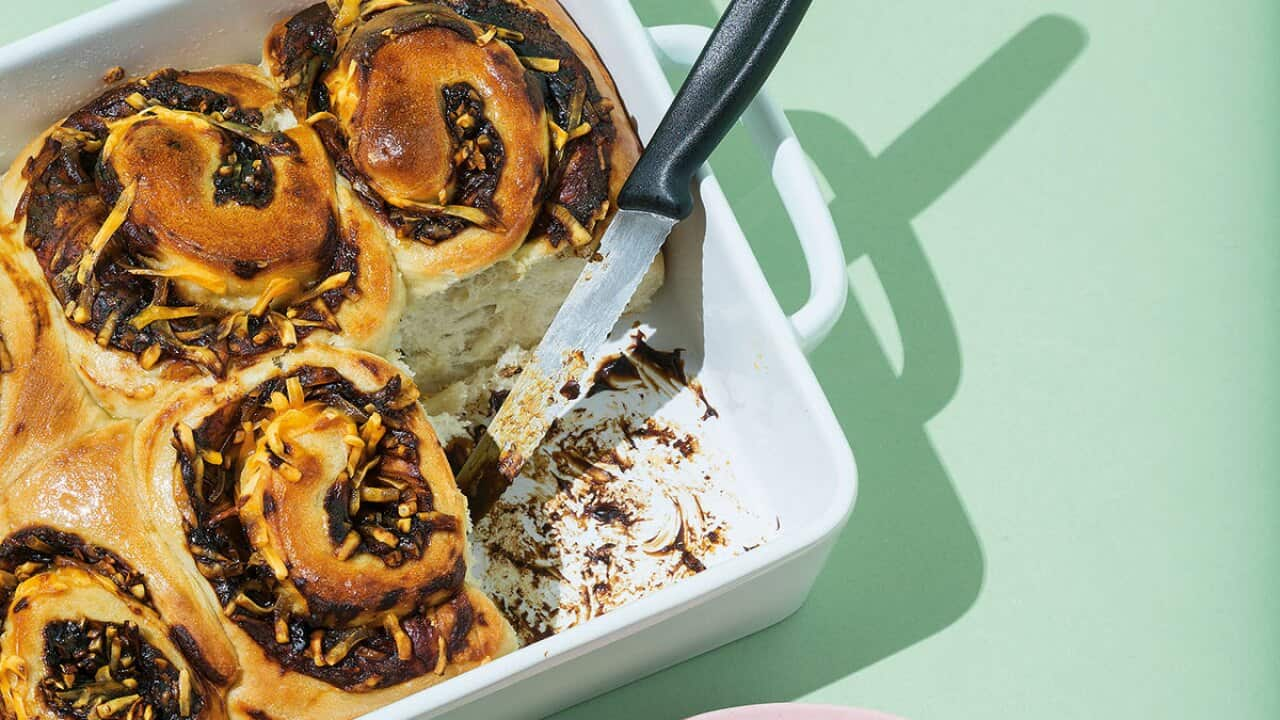“I was born in Bolivia in South America. My family came to Australia in the mid-70s. My parents had no English, two suitcases, two children and many dreams and hopes. They love Australia and all the opportunities this wonderful country has given us.
“One thing that they taught my sister and I was to always respect Pachamama - Mother Earth. My grandmother on my mother’s side would prepare meals for Pachamama. She would also prepare rituals for Pachamama in respect and honour for all she provided for her family.
“I share many of the ideals that my grandmother had and I have applied these to the cashew cheeses that I make,” says Maria Ballesteros, the woman behind vegan cheese brand Sprout & Kernel.
The brand is now stocked in almost 300 stores across Australia, and given that, you might think there’s a whole team of vegan cheesemakers making the product. But in fact, it’s just Ballesteros, sometimes with some help from her husband, and her parents, who now live just a few minutes’ walk away from the Blue Mountains, NSW, home where she, her husband and their children live, and where the production facility is also located.
Each batch of fermented cashew-based cheese is hand-made. The range includes a classic plain cheese, plus peppercorn, herb and chive variations. Gluten-free and dairy-free, with a slight tang from a buckwheat-based culture, they don’t just appeal to vegans. When we talk to Ballesteros, she’s getting ready to head to the (25-27 October). “We love doing shows like that – bringing it to a different crowd of people. There are so many people with lactose intolerance, and they just really embrace a new cheese, and there's also a lot of people that just want something different on their cheeseboard. And we also find every person knows a vegan, it's either, ‘My daughter's vegan’, or ‘My son's girlfriend's vegan’, ‘My son's vegan’, ‘My auntie's vegan’, and it's ‘Wow, we've got something now that we can give them’, which is really exciting.”
When we talk to Ballesteros, she’s getting ready to head to the (25-27 October). “We love doing shows like that – bringing it to a different crowd of people. There are so many people with lactose intolerance, and they just really embrace a new cheese, and there's also a lot of people that just want something different on their cheeseboard. And we also find every person knows a vegan, it's either, ‘My daughter's vegan’, or ‘My son's girlfriend's vegan’, ‘My son's vegan’, ‘My auntie's vegan’, and it's ‘Wow, we've got something now that we can give them’, which is really exciting.”

Sprout & Kernal cheeses are made on the family's Blue Mountains property Source: Sprout & Kernel
Ballesteros became a cheesemaker almost by accident. A graphic designer by trade, four years ago she was freelancing so that she could be home more with her children. “Around that time, I was, with a friend of mine, veganising Bolivian food,” she says, with the idea of creating a book of Bolivian vegan recipes. “And I'd been in touch with a few women that were already doing vegan cakes and this vegan cheese. And that's how I started working with a vegan cheesemaker.”
Freelancing was quiet, and it was something she could fit in around family life. “She trained me up on how to make vegan cheeses, and I just really loved what I was doing. I was being creative and also working with a sustainable product.” So when the owner decided she was going to close the business, Ballesteros decided to buy it.
“We rebranded, we changed the recipe to suit us, to what we liked, and we added extra varieties to the range,” she explains.
At least two more varieties, including , are in the works. The aged cheese variety has been temporarily put on hold, because of the sheer amount of space needed to store the cheeses while they mature. Ballesteros says she'd love to start making them again if the business grows enough for the company to expand into a big coolroom. Is there a Bolivian cheese she’d like to recreate, we ask?
Is there a Bolivian cheese she’d like to recreate, we ask?

From top: ash noir, classic, chive, peppercorn and herb. Source: Sprout & Kernel
“There is one called cacio which I used to love when I used to go there [back to Bolivia] - that was obviously before I was vegan.
“It's like a form of ricotta really. And my mother used to make that for us when we were kids, in the backyard. Put the curd into a bag, like a traditional way of making cheese, and getting all the whey out of it [by hanging the bag].
She’s also taken some Sprout & Kernel cheese to Bolivia. “Because my family follow me on Facebook, on the business, and they're like, ‘Oh, we want to try this cheese’, and they all just loved it. They can't believe it's made with nuts, because no one's doing that in Bolivia. I was really happy to know that they really enjoyed it.”
A batch of cheese is usually a two-day process. “It’s weather-dependent,” she explains. Each batch of processed cashews is fermented, using a probiotic culture called rejuvalac, for around eight to 12 hours; the culturing is quicker in warmer weather.
“We could have just used a powdered probiotic, which is what most cheese companies do, because it's obviously easier. It's more time effective as well. We did try a little batch doing the powdered probiotic, and it just tasted too manufactured. And we just thought, ‘No, this, this goes against what our ethos is, making a product that is sustainable and that is good for your internals as well, your gut, and trying to keep it as natural as possible’. So, it does take a little bit of time, but it's worth it for the end product.” So which is the most popular variety? Chive, she says – although she loves the plain, for its versatility.
So which is the most popular variety? Chive, she says – although she loves the plain, for its versatility.

The blending, mixing, shaping and cutting process takes about two days. Source: Sprout & Kernel
“Because there's no extra flavours, it's good to cook with. If you're making a red [pasta] sauce, at simmer stage, just cube some up and stir them in and it'll melt into the sauce to give you a nice creamy consistency. I even throw that in if I'm making corn chowder or any soup, I'll just cube a few up and then stir them in. It'll melt into it.
“You can pan-fry them all like halloumi, too. Slice them and fry them until they’re nice and warm in the centre, then toss them in a salad, or on toast. We’ve even put one in the deep-fryer! I really enjoyed that – obviously, you wouldn’t have that regularly, but for a one-off, we were like ‘wow’.”
Sprout & Kernel cheese will also be at on November 17. Want more vegan-inspired recipes?You can find our vegan collection .









